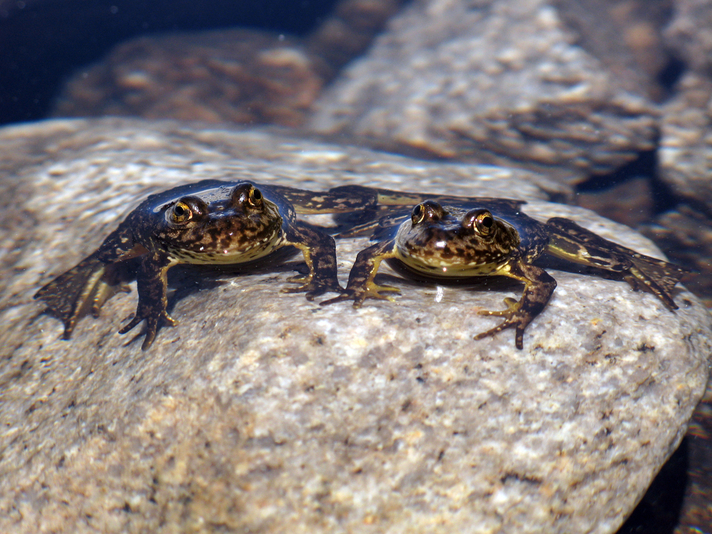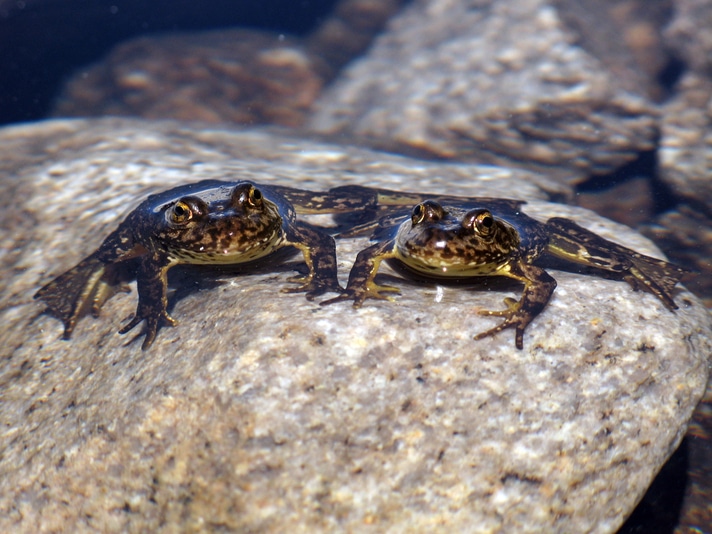One estimate put the number of mountain yellow-legged frogs in the wild at less than 100.
The U.S. Fish and Wildlife Service has released a draft recovery plan for the critically endangered, Southern California population of mountain yellow-legged frog, (Rana muscosa) a frog that once numbered less than 100 in the region.

JASON MINTZER/SHUTTERSTOCK
A plan to protect the Southern California mountain yellow-legged frog will soon be put in place.
Under the plan, the USFWS will implement a variety of actions and research efforts to better handle the myriad threats that face the mountain yellow-legged frog. The settlement with the Center for Biological diversity calls for a final recovery plan to be in place by the end of 2018.
“Time’s running out for these rare amphibians, so I’m relieved we finally have this roadmap that’s so urgently needed for their survival,” Jenny Loda, a Center biologist and attorney who works to protect endangered reptiles and amphibians, said in a statement released to the media. “If we’re going to save these unique frogs from extinction, we’ve got to protect them from threats like non-native predators and pollution. This plan is a strong start.”
The Center sued the U.S. Department of the Interior in 2014 because it did not develop a recover plan for the species. The draft plan announced July 20 is a result of that lawsuit.
“Because we’re already down to so few of these frogs remaining in the wild, bringing them back from the brink won’t be easy,” Loda said. “But we can’t afford to lose these beautiful amphibians, so I hope federal, state and local agencies all step up to support the important work of recovery.
The mountain yellow-legged frog is around three inches in length and lives in high elevation lakes, ponds, streams, and pools of water in California. It hibernates in the winter months. The frog lays eggs in the spring and the tadpoles arrive approximately two months later and remain as tadpoles throughout the summer, winter, and following spring. They then start to metamorphose into frogs the following summer and fall. As adults, they can live 10-15 years.



